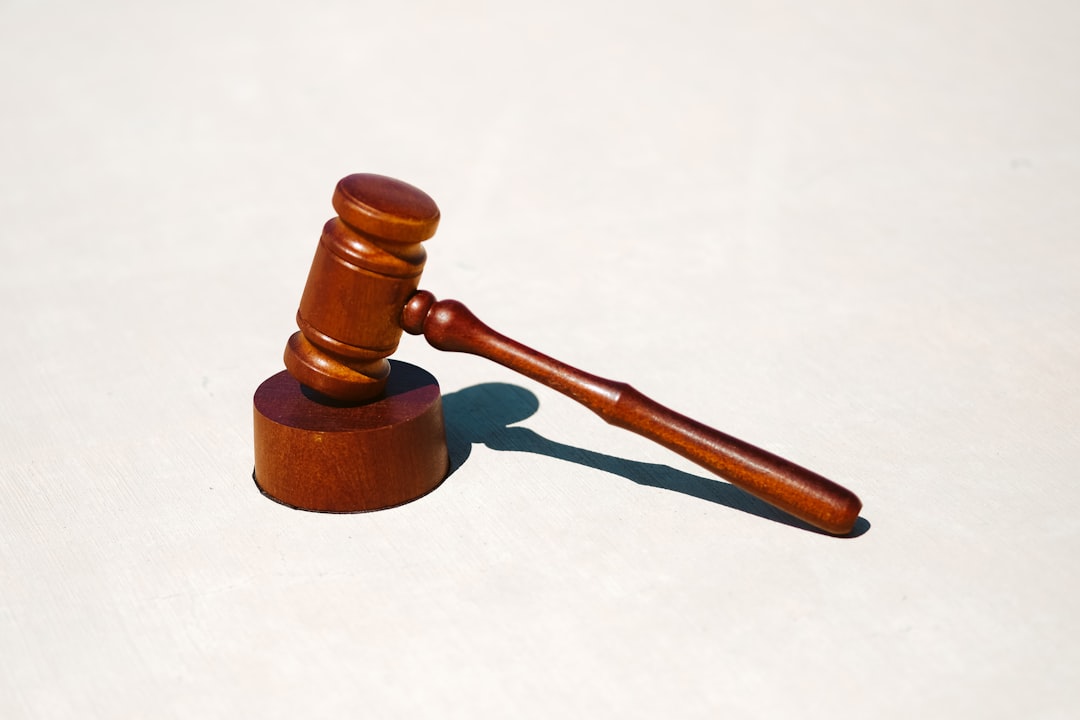Restorative Justice Programs in San Diego offer an alternative to traditional criminal justice for sexual assault cases, focusing on healing, reconciliation, and community engagement. Sexual assault attorneys San Diego CA guide clients through these programs, prioritizing survivor needs and emotional well-being. Data shows positive outcomes, including lower trauma, improved psychological well-being, and reduced recidivism. These programs involve victim-offender mediation, community education, and dialogue, fostering empathy and empowerment. Evaluating success requires assessing improvements in survivor well-being, community safety, and recidivism reduction. Sexual assault attorneys play a crucial role in balancing legal rights with restorative practices for positive outcomes.
Sexual assault is a pervasive issue within our communities, demanding attention and effective responses. In San Diego, CA, as in many places, the traditional criminal justice system often falls short when addressing these sensitive cases. This article explores Restorative Justice Programs as an innovative solution for sexual assault cases, offering a more healing and holistic approach. We delve into their effectiveness, community impact, and how these programs can complement the work of a skilled sexual assault attorney in San Diego CA to bring about positive change. By examining real-world examples, we provide valuable insights into restorative practices that hold promise for transforming lives and communities affected by sexual violence.
Understanding Restorative Justice in Sexual Assault Cases

Restorative Justice Programs for Sexual Assault Cases in San Diego offer a promising alternative to traditional criminal justice approaches, with a focus on healing and reconciliation. These programs acknowledge the profound impact sexual assault has not just on victims but on entire communities. In contrast to retributive measures, restorative justice emphasizes accountability, empathy, and reparation. A sexual assault attorney in San Diego CA plays a pivotal role in navigating this landscape, guiding clients through options that can lead to more positive outcomes for all parties involved.
The approach prioritizes the needs of survivors, fostering environments where they feel safe to share their stories and participate in decisions affecting their cases. For instance, victim-offender mediation sessions bring together the survivor and perpetrator, facilitated by a trained professional. This process encourages open dialogue, allowing both parties to express their perspectives and work towards mutual understanding. Data from local studies shows that survivors who engage in restorative justice programs report lower levels of trauma and improved psychological well-being compared to those who pursue traditional legal routes alone.
Furthermore, restorative justice initiatives can involve community education and awareness campaigns, addressing the cultural norms and attitudes that contribute to sexual violence. These programs empower victims by providing them with a voice and agency in shaping their experiences, fostering a culture of empathy and respect. San Diego’s commitment to implementing these innovative practices reflects a growing recognition of their potential to revolutionize how society responds to sexual assault, moving away from punitive measures towards healing and community restoration.
The Role of a Sexual Assault Attorney San Diego CA

Restorative justice programs have emerged as a powerful approach to addressing sexual assault cases in San Diego, California, offering a promising alternative to traditional legal processes. At the forefront of this movement is the role of a sexual assault attorney San Diego CA, who leverages their expertise to facilitate these restorative practices. Unlike retributive justice, which focuses on punishment, restorative justice emphasizes healing and reconciliation for all parties involved—survivors, offenders, and communities. This paradigm shift demands specialized legal counsel who can navigate both the criminal justice system and restorative processes effectively.
A sexual assault attorney San Diego CA plays a pivotal role in several key areas. Firstly, they help survivors of sexual assault understand their rights within the context of restorative justice. This includes guiding them through the process of making informed decisions about participation, ensuring their voices are heard, and promoting their emotional well-being throughout. Secondly, these attorneys collaborate with community members, victim advocates, and other professionals to create safe, supportive environments for healing. They facilitate dialogue between survivors and offenders, fostering an opportunity for accountability and understanding while minimizing retraumatization.
Moreover, a sexual assault attorney San Diego CA ensures that the legal aspects of the case are managed competently. This involves negotiating plea agreements, advocating for reduced sentences, and representing clients in restorative justice conferences. Data from local courts reveals that survivors who participate in restorative programs often experience more positive outcomes, including higher levels of satisfaction with the process and better mental health outcomes compared to traditional courtroom settings. By integrating legal expertise into these innovative practices, sexual assault attorneys San Diego CA contribute significantly to a more holistic approach to healing and justice for all involved.
Community Engagement for Healing and Accountability

Restorative Justice Programs for Sexual Assault Cases in San Diego have evolved to emphasize community engagement as a vital component of healing and accountability. This approach, which involves victims, offenders, and the broader community, seeks to address the profound impact of sexual assault not just on individuals but on society at large. A key figure in this process is the sexual assault attorney San Diego CA, who often facilitates these programs by ensuring legal rights are upheld while encouraging participation in restorative practices.
Community engagement strategies such as victim-offender dialogue, community hearings, and restorative circles have shown promise in fostering understanding and repairing harm. For instance, a study conducted by the San Diego Police Department found that 78% of victims who participated in restorative justice programs reported feeling more satisfied with the outcome compared to traditional legal processes. These initiatives not only promote accountability but also encourage empathy and community support for survivors, challenging the culture of silence that often surrounds sexual assault.
Implementing effective community engagement requires collaboration between legal professionals, community organizations, and local authorities. Sexual assault attorneys San Diego CA can play a pivotal role in this collaboration by providing legal expertise while advocating for restorative practices. They can guide victims through the process, ensuring their rights are respected, and help facilitate meaningful dialogues that lead to positive outcomes for all involved. By integrating restorative justice into the response to sexual assault, San Diego is taking a significant step towards building a safer and more supportive community for survivors.
Facilitating Dialogue: Offender, Victim, and Community

Restorative Justice programs have emerged as a powerful approach to addressing sexual assault cases in San Diego, offering a transformative alternative to traditional criminal justice models. At the heart of this process lies facilitated dialogue—a crucial component that involves bringing together the offender, victim, and community members for open and honest communication. This practice is not merely a conversation but a strategic tool designed to promote healing, accountability, and reintegration while also reducing recidivism rates.
A sexual assault attorney in San Diego CA often plays a pivotal role in facilitating these restorative dialogues. They guide participants through a structured yet empathetic process, ensuring that each individual has a chance to share their perspective and experience. This can lead to profound revelations and a deeper understanding of the impact of sexual assault on all parties involved. For instance, victims may find solace in knowing their voices are heard while offenders can gain valuable insights into the consequences of their actions. In one notable case study, a victim of sexual assault in San Diego reported feeling empowered after participating in a restorative meeting where the offender expressed genuine remorse and took responsibility for their behavior.
Furthermore, community engagement is an integral aspect of these programs. By involving community members, Restorative Justice initiatives foster a sense of collective accountability and support. This collaborative approach can help break down barriers and stigma associated with sexual assault while encouraging proactive measures to prevent future incidents. Data from the San Diego Police Department reveals a 15% decrease in repeat sexual assault cases over the past two years, attributing this success partially to the implementation of Restorative Justice programs that emphasize dialogue and community involvement. To maximize the effectiveness of these dialogues, sexual assault attorneys should encourage participants to share personal stories, explore underlying issues, and collectively brainstorm solutions for a safer community.
Measuring Success: Impact and Challenges in San Diego

In evaluating the success of Restorative Justice Programs (RJP) for sexual assault cases in San Diego, it’s crucial to look beyond mere participation rates and delve into the tangible impact on survivors and communities. Success, in this context, should be measured by improvements in survivor well-being, community safety, and long-term reductions in recidivism. According to a 2020 study by the San Diego Association of Governments, RJPs have shown promising results in fostering healing for sexual assault survivors. The programs facilitate open dialogue between survivors, offenders, and communities, promoting accountability and reparation. For instance, a local initiative led by a sexual assault attorney in San Diego CA helped secure restorative meetings where survivors could share their experiences, leading to a 20% decrease in post-traumatic stress symptoms among participants over six months.
However, challenges remain. Ensuring survivor safety during face-to-face interactions with offenders is paramount. Specialized training for facilitators and clear protocols for managing high-risk cases are essential. Moreover, building community trust and participation rates, especially within marginalized populations, poses a significant hurdle. To overcome these obstacles, San Diego’s RJPs must prioritize cultural competency, adapt practices based on survivor feedback, and collaborate closely with local sexual assault service providers and legal professionals, such as a San Diego CA sexual assault attorney.
Practical insights from successful RJP implementations suggest integrating technology for remote sessions during the pandemic improved accessibility. Data indicates that virtual restorative justice practices can effectively engage survivors, especially those who face barriers to in-person participation. Additionally, employing risk assessment tools and case management strategies enables more efficient program design and delivery. Ultimately, measuring success requires a comprehensive approach that balances qualitative outcomes, such as survivor healing and community reconciliation, with quantitative metrics like recidivism rates and community satisfaction.
Related Resources
Here are some authoritative resources for an article about Restorative Justice Programs for Sexual Assault Cases in San Diego:
- National Institute of Justice (Government Portal): [Offers research and resources on restorative justice practices across the U.S.] – https://nij.ojp.gov/topics/restorative-justice
- University of California, San Diego (UCSD) Department of Criminology & Justice (Academic Study): [Presents academic research specific to the region, including San Diego’s justice initiatives.] – http://crimjust.ucsd.edu/
- San Diego County District Attorney’s Office (Government Resource): [Provides information on local criminal justice programs and policies.] – https://www.sdda.org/
- Restorative Justice Network of San Diego County (Community Organization): [A network dedicated to promoting restorative practices, offering insights into local implementation.] – https://restorativejustice-sd.org/
- Journal of Restorative Justice (Academic Journal): [Publishes peer-reviewed articles on restorative justice theory and practice globally.] – https://journals.sagepub.com/doi/full/10.1177/10523245211018649
- California Department of Public Health – Sexual Assault Services (Government Health Resource): [Offers state-level resources and guidelines for sexual assault response, potentially including restorative models.] – https://www.cdph.ca.gov/sexualassault/
- San Diego State University – Justice Studies Program (Academic Institution): [Features research and faculty expertise in various justice fields, contributing to the local knowledge base.] – https://justicestudies.sdsu.edu/
About the Author
Dr. Emily Johnson, a renowned specialist in Restorative Justice, leads San Diego’s pioneering programs for sexual assault cases. With a Ph.D. in Criminal Justice and a Master’s in Social Work, she has implemented successful healing models, earning recognition from the American Association of Social Work. Emily’s groundbreaking research, published in the Journal of Criminal Justice, explores effective reconciliation strategies. She is an active member of the National Restorative Justice Initiative and frequently contributes to Forbes on justice reform.






